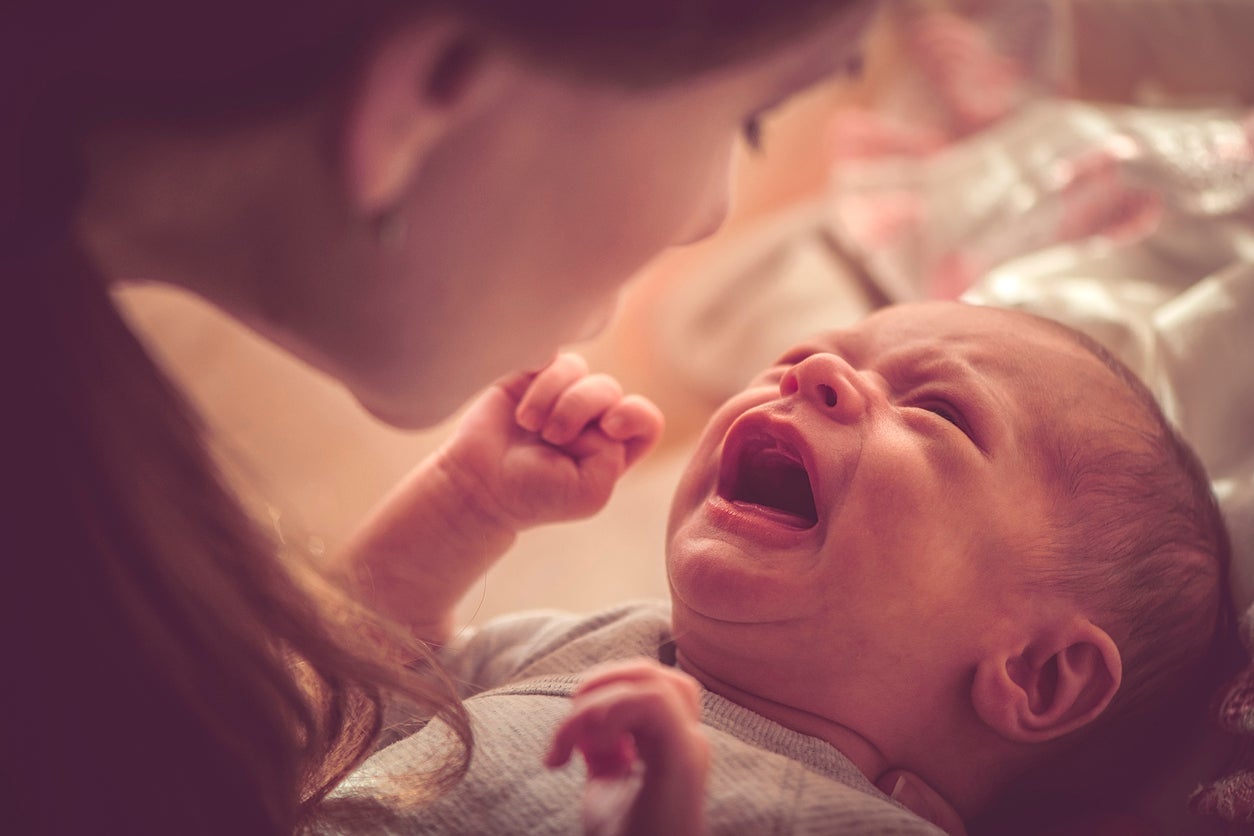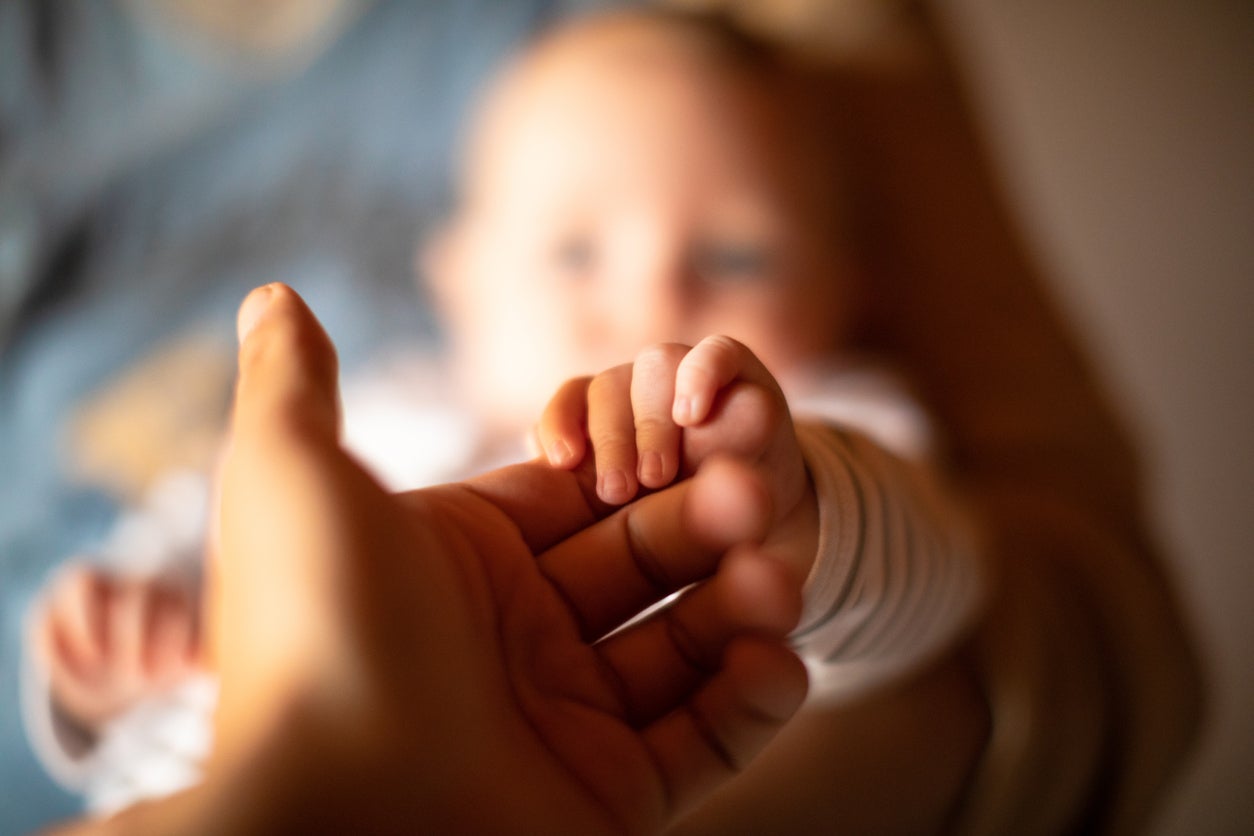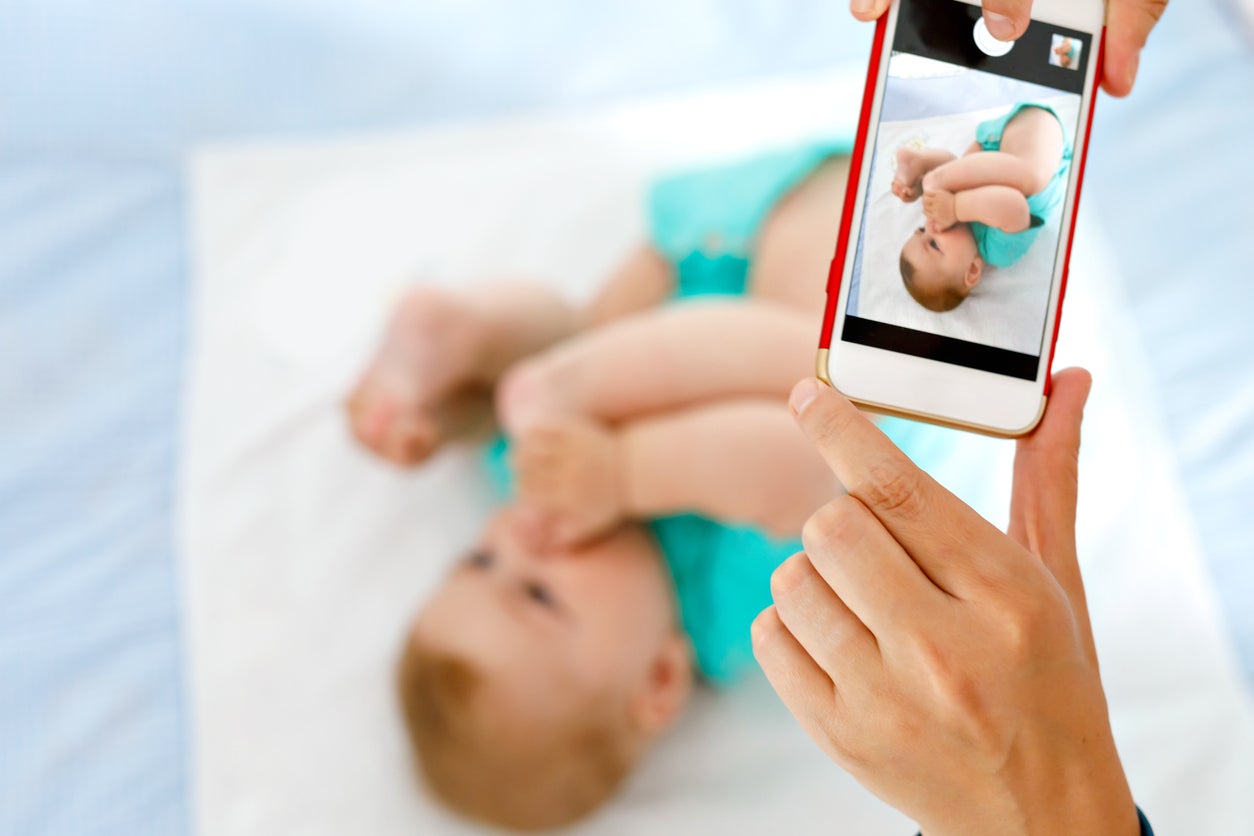The motherhood dilemma: When does ambivalence tip into regret?
The best thing we can do for mothers is to stop falling back on mindless platitudes and speak about having children as it really is, says Cathy Adams


I first understood something wasn’t quite right when I was pregnant. Sat above a local pub in my southeast London neighbourhood, in the performative baby dance that is the NCT (National Childbirth Trust) meeting., we met three other couples who were due to give birth to their first child around the same time as us.
February’s wind blew at the Victorian windowpanes and shortbread was stacked up by the bar. I remember so clearly trying to articulate how I felt – or in my case, didn’t feel – about the baby germinating inside me. I wanted to say I wasn’t sure that I wanted children (although my husband did) but that seemed an obscene thing to say when I was clearly Very Pregnant. Nor did I mention how I was working up until my due date so as not to allow myself any moment to think about what a monstrously life-changing decision having a baby was. Would this come across as unnaturally cold?
The most crowd-pleasing thing I could think to utter was that the pregnancy was all so abstract; that of course I didn’t love whatever I was growing because how could I possibly have feelings for this lump attached to my body? It fell as flat as my depleted brain cells.
Yet when I admitted in this newspaper that I sometimes resented my now 16-month-old son, that he epitomises everything that I’ve lost as well as what I’ve gained, and that I am struggling with ambivalent feelings towards my role as a mother, I wasn’t prepared for the hundreds of women who messaged me to say they felt exactly the same. And naturally, I also wasn’t prepared for the scant few men who messaged to tell me to “get on with it” and “it was I was put on the earth to do”. Later, a friend (male, child-free) told me I struck him as “a bit like the Bolter” from Nancy Mitford’s Pursuit of Love, which stung a bit. I loved my son, I just didn’t love parenting.
My son represents everything I’ve lost as well as everything I’ve gained
Almost a year and a half after giving birth, I am still appalled on a regular basis at how repetitive, boring and empty parenthood can be, and why this viewpoint is almost universally squashed in modern culture. I remain deeply mystified as to how parenthood is described as the pink-tinted “best job in the world”. If motherhood were paid work, I’d barely have made it beyond my first fag break, let alone passed my probation.
My outpouring of thinly veiled resentment sparked a shower of support from other women. Some said these feelings of ambivalence improved over time (”When?” I asked. The goalposts seem to change constantly: when they can talk, when they go to school, when they’re teenagers). Others told me they still disliked being a parent after 10 years; many told me they regretted having children at all. I wanted to cry – these were my people!
One mother, who struck a particular chord with me, said she felt much happier and more fulfilled during the week when her children were in full-time childcare and she was at work. That I could really relate to. I’m not alone in feeling far more fulfilled and content sitting at my computer Monday to Friday, tired brain cells firing as best as they can after minimal sleep and endless baby-related cleaning up.
I’m not a bad mother for admitting that looking after children is gruelling and that I dislike bending my time around his rigid napping-and-feeding regime. I freely admit that I’m a better mother now in the scant few hours a day that I spend with my son. As I explained when I was invited on to Woman’s Hour to talk about maternal ambivalence, understanding the fine, frustrating nuances of your “mother state” is vital for relating on a human-to-human level to your child. If my toddler grows up understanding that his mother saw motherhood for what it is – everything from eye-opening to dark-of-the-night despair – then I’ll have done my job as a parent.
It got me thinking more about ambivalence towards mothering. Clearly, I’m not alone flailing around in the gaping chasm of emotion that exists between the sepia-toned portrayal of perfect motherhood and the reality, for me usually rendered in various shades of babygrow-grey.
Ambivalence towards children isn’t a new concept. In literature, we’ve been served with a not-exactly-admirable cast of ambivalent mothers: there’s the aforementioned Nancy Mitford’s Bolter, portrayed as a reckless hedonist with no more moral fibre than lovesick Linda; the spiky Eva in Lionel Shriver’s We Need To Talk About Kevin, whose ambivalence is the background to her son spraying arrows in his high school; and repulsive Harriet in Doris Lessing’s The Fifth Child, who considers her son a “hostile little troll”.
Where ambivalence has been more tentatively discussed is in relation to choosing to have a child at all. Women are rejecting the “traditional” ideal of childbirth as a one-size-fits-all experience, as more choose instead to remain child-free. Figures from a 2018 Office for National Statistics study show that 19 per cent of women were still child-free at 45; more than double their mothers’ generation.
I’m not alone in feeling far more fulfilled and content sitting at my computer Monday to Friday, depleted brain cells firing as best as they can after minimal sleep and endless baby-related wiping
And when we are choosing to have children, we’re doing it differently. For me and my peers, we made practical decisions based on logic and evidence. Some might call it unromantic; I call it pragmatic. For me, I surmised that my career was on track and I could afford to take some months out. I’d crushed a whole lot of international travel into the year I got pregnant. I felt emotionally and financially stable enough to contemplate being a parent. Yet what really propelled me forward was the itching feeling of: “What if you regret not doing it?”, that might have tormented me in years to come.
Contrast this millennial’s pragmatic decision-making to my mum, who says she knew she wanted children from a “feeling” she woke up with one day, which felt utterly alien to me.
Yet while ambivalence towards having children at all is increasingly spoken about more openly – I’m currently reading Nell Frizzell’s excellent The Panic Years, about this very topic – any mention of ambivalence is vanishingly rare the moment women give birth. Any feelings of uncertainty, of emotional turmoil towards their children or motherhood, becomes less a conversation starter and a cultural moment and more of a serious taboo. Why?
Society would collapse if women were honest about the realities of motherhood, Dr Amy Brown, professor of public health at Swansea University and author of Let’s Talk About The First Year of Parenting, a frank, conversational look at the first year of motherhood, tells me. She makes it sound so simple that I nod furiously when I chat to her.
“It’s the logic of it,” she says. “Why do you want to be woken up at 3am? What is enjoyable about that? If you did that for your job, people would recognise that you need to rest and complain about it.”
Maternal ambivalence can affect mothers of all ages but typically, women are more likely to feel resentful about motherhood the more career-focused they are, says Dr Brown. “You’re used to having money and freedom; used to having control over your day where you can plan your time in a certain way. You have the respect of your colleagues. You also go out in the same way,” says Dr Brown. This all gets thrown out of the window when women give birth. I love my job and I derive much satisfaction from it: I suspect this is why I breathe a sigh of relief on Monday mornings.
She reassures me that what I’m feeling has nothing to do with my son, who despite my words, is a much-loved member of my embryonic family. “It’s not him, it’s everything to do with him.”

There are signs that ambivalence is tipping into regret. Recent data from YouGov, which served 1,249 parents, shows that eight per cent of people say they regret having children, while another six per cent previously had regrets but don’t now. Younger parents are more likely to feel regret at some point in their lives, with the figure rising to one in five among parents aged between 25 and 34. A recent Mumsnet thread, written by the mother of a seven-month-old boy, went viral for suggesting she regretted having children. She said how she was a “vibrant and fun person but is now a shell of her former self” and warned other mothers that it “may ruin your life”. Other comments in the same thread agreed.
The idea that a woman might regret having children goes against received opinion for millennia. The standard line is that children will enrich your life, will deeply expand your horizons and soul in ways you couldn’t fathom without having cared for one – it’s so ingrained in female thought that the experience is often indescribable in any other way, which is staggeringly reductive. For starters, the weight of all these expectations is a hell of a lot for a newborn to shoulder. And secondly, horizons can be expanded in all manner of ways. Travel, relationships with friends and family, a delicious conversation with a stranger in a bar. I won’t say I regret having my son, because I don’t – most of the time. But I want to be candid about the fact that he is not the centre of my world. Regret and ambivalence are very close cousins indeed.
The standard line that children will enrich your life in ways you couldn’t fathom without having cared for one is staggeringly reductive
Yet, when asked cheerily, “how I’m enjoying motherhood”, it’s almost impossible for my mouth not to form the words that while parenting is hard and often loathsomely boring, it’s still the best job in the world. When this happens, everyone around me takes a collective internal sigh of relief, and the dance of the perfect mother continues.
The cult of the good mother
Am I a bad mother for admitting my simmering resentment? Maybe, although the science is on my side. In 2019, an expert in happiness, Paul Dolan, caused a stir by saying women who are not married and do not have children are the happiest group in the population (while on the flip side, men who were married were happier than those who were not). The professor of behavioural science at the London School of Economics said unmarried and childless women are also likely to outlive their married child-rearing counterparts and are healthier than them. Yet in modern culture, you’d never know this is the case.
The original perfect mother, the Virgin Mary, remains so unblemished she doesn’t need to do the dirty deed in the first place. Two millennia later, the perfect mother is to be found fiddling with her smartphone rather than arranging straw mangers in Bethlehem. Social media is so ingrained as part of the parenting experience that it’s been given its own verb: sharenting. Instagram, in particular, has given parents the opportunity to share their own burnished existence with other parents, refracting their experience through the Juno filter and captions.

Women not entirely in love with their new “mother self” can struggle against the emotional, commercialised juggernaut that is the happy mother social media narrative – or at least I do. We only have to look to Instagram, where the hashtag “mumlife” has been used 12.7 million times, showing everything from adoring pictures of children against birthday-cake-coloured backgrounds and expertly posed women with fancy prams. If you’re a woman between the ages of 25 and 45 it’s almost certain you’ll have seen peer after peer give birth to “our bundle of joy”. Where a search of “mum” brings up pages of “mummy influencers”, who, in between documenting a refulgent view of mothering, flog everything from nappies to baby formula. These bloggers might bemoan the practical struggles of having kids, such as the constant state of their house and the sleepless nights, but I’m yet to see one say they regret giving birth. I follow a handful of these women assiduously because in many ways I’m searching for what they have that I don’t.
As we all know, social media only tells part of the story. A survey from 2012 parenting website Netmums, which questioned 11,000 parents, found that a third of parents admitted to lying about their child’s sleep habits, including what time they went to bed and how well they sleep.
I’m just as guilty as the next woman of airbrushing the pain of childbirth out of my posts. In the first few weeks of new motherhood, I posted funny pictures of my son in too-big bear suits and hats that made him look like Brian Harvey from East 17. I got closest to honesty when he turned 12 weeks and shed the horrifying “newborn-ness”. I think I was feeling particularly spiky that day after lack of sleep and too many espressos.
“Would be untrue to say I’ve loved the past three months,” I posted, with a level of diplomacy reserved only for high-level political negotiations. “Babies are notoriously boring and unfulfilling – and I’ve really missed adult stimulation, and honestly, my job.” What I meant: I hated every bloody moment of it and wished I’d never had a baby. The gist of my post was that I wasn’t sure that having a baby was really “worth it”.
The response was immediate. Friends without children thanked me for my honesty. One said she’d been trying for a baby without success and was relieved to hear having a baby wasn’t a fast-track to living a “complete” life. Others said that going back to work made them a better parent and pretty much everyone with kids said it would get better.
Disappointingly, after that initial burst of frankness, I’ve reverted to posting selective and attractive pictures of my son that attract comments such as “loveable tyke” or a string of heart emojis. I’ve converted back to type without even realising I’m doing it.
“We are so scared that we’re told we’re bad mothers,” says Dr Brown. “We’re so afraid of being a bad mother and that we don’t love our children. We perpetuate the myth ourselves. Other people will say they’re a good mother and we need to feel like one.”
Then there’s the other side of the coin. A search for the term “maternal ambivalence” brings up just 100 posts on Instagram. Spilling your resentment doesn’t fit nicely within the careful borders of the jolly “having it all” narrative that is recycled mindlessly in order to sustain life.
I’ve lent heavily on author Roszika Parker, who made maternal ambivalence the central theme in her book. She argued that understanding the flashes of hatred for a mother’s children actually improved their relationship. She said that by not thrusting towering expectations on to a child to fill the emotional gaps, and by showing a child that adults feel frustration and anger just as much as they do, mothers can relate more effectively to their children.
Over the past 16 months, I’ve felt frustration, anger and resentment – emotions that don’t usually appear on the saccharine Hallmark cards you send new parents. I’ve also felt love and wide-eyed delight and everything in between. The best thing we can do for mothers is to stop falling back on mindless platitudes and speak about having children as it really is.
Join our commenting forum
Join thought-provoking conversations, follow other Independent readers and see their replies
Comments
Bookmark popover
Removed from bookmarks